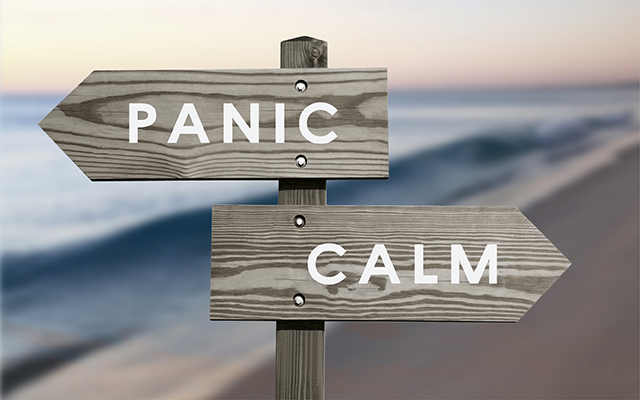My Lovely Wife was raised by optimists. Her father was a Boy Scout leader who taught her and her siblings to look on the bright side. “What’s the worst thing that could happen?” was his mantra when faced with uncertainty. It rubbed off on MLW, for whom preparation is the antidote to anxiety.
I was raised by pessimists. In the household of my youth, we learned to expect the worst and prepare to be disappointed. Besides setting a pretty low bar for happiness, this approach produced an odd mixture of low-level angst and reckless apathy: At various intervals, I’d decide that no amount of worrying was going to change anything, so why stress out? Then reality would intervene in the form of some self-inflicted indignity, which would reliably reinforce both my pessimistic outlook and my worrisome behavior.
These divergent philosophies made for some fascinating conversations during our early years together — my gloomy fatalism jousting with MLW’s sunny free will. As I’ve aged, however, I’ve gradually exchanged my angst for a vexing drift toward a sort of Zen state of whatever. This might qualify as “the worst thing that could happen” for MLW. It’s certainly lowered my stress levels, though I doubt I can say the same for hers.
We all know that excessive worry and stress can inflict significant damage on the aging body. It can trigger an inflammatory response that disrupts the immune system, leading to all manner of chronic ailments. Various studies have suggested that too much stress can actually accelerate biological aging. But my “don’t worry, be happy” approach is not necessarily as constructive as I’d like to think it is, according to a new study led by University of California–Riverside psychology professor Kate Sweeny, PhD. A little worrying has a definite upside.
The Healthy Side of a Little Worry
“Despite its negative reputation, not all worry is destructive or even futile,” Sweeny explains in a statement. “It has motivational benefits, and it acts as an emotional buffer.”
Sweeny and her research team found that women who are moderately worried about their health were more likely than either carefree or serious worriers to seek out preventive health screenings. And they’re also more likely to “assemble a ready-made set of responses in the case of bad news,” she notes.
This, of course, makes perfect sense unless, like me, you have no interest in digging up some potentially fatal condition that will do nothing but raise your stress levels, resulting in additional inflammatory triggers that will hasten your eventual demise. But that’s just me.
Outside of the doctor’s office, though, Sweeny’s motivational arguments may have some merit. She suggests that worry keeps important issues front and center and prods the worrier to deal with them. That resonates here in Geezerville, where retirement worries can keep folks like MLW awake at night. Those concerns have even pushed this hopeless slacker to actually consider his options and make some plans. Not that I’ll be touring the national parks in an RV any time soon, but still. . . .
More puzzling, from an emotional angle, is Sweeny’s argument that worrisome behavior is a salutary option simply because it feels worse than what it is you’re probably worrying about. As she puts it, “If people’s feelings of worry over a future outcome are sufficiently intense and unpleasant, their emotional response to the outcome they ultimately experience will seem more pleasurable in comparison to their previous, worried state.”
One of the things I do worry about is falling off the ladder whenever I climb up to clean the leaves out of our gutters. The intensity of my angst is directly proportional to the velocity of the wind and the relative stability of the ladder, but I’m having a difficult time accepting Sweeny’s belief that ratcheting up my anxiety is going to cushion my fall should I topple into MLW’s flower garden.
Sweeny is careful to note that she’s not equating high anxiety with a higher quality of life. She simply wants to “provide reassurance to the helpless worrier.” I don’t place myself in that category, but I appreciate her sentiment. And next time MLW and I are discussing our retirement plans, I will avoid the temptation to tell her to chill out.

This Post Has 0 Comments